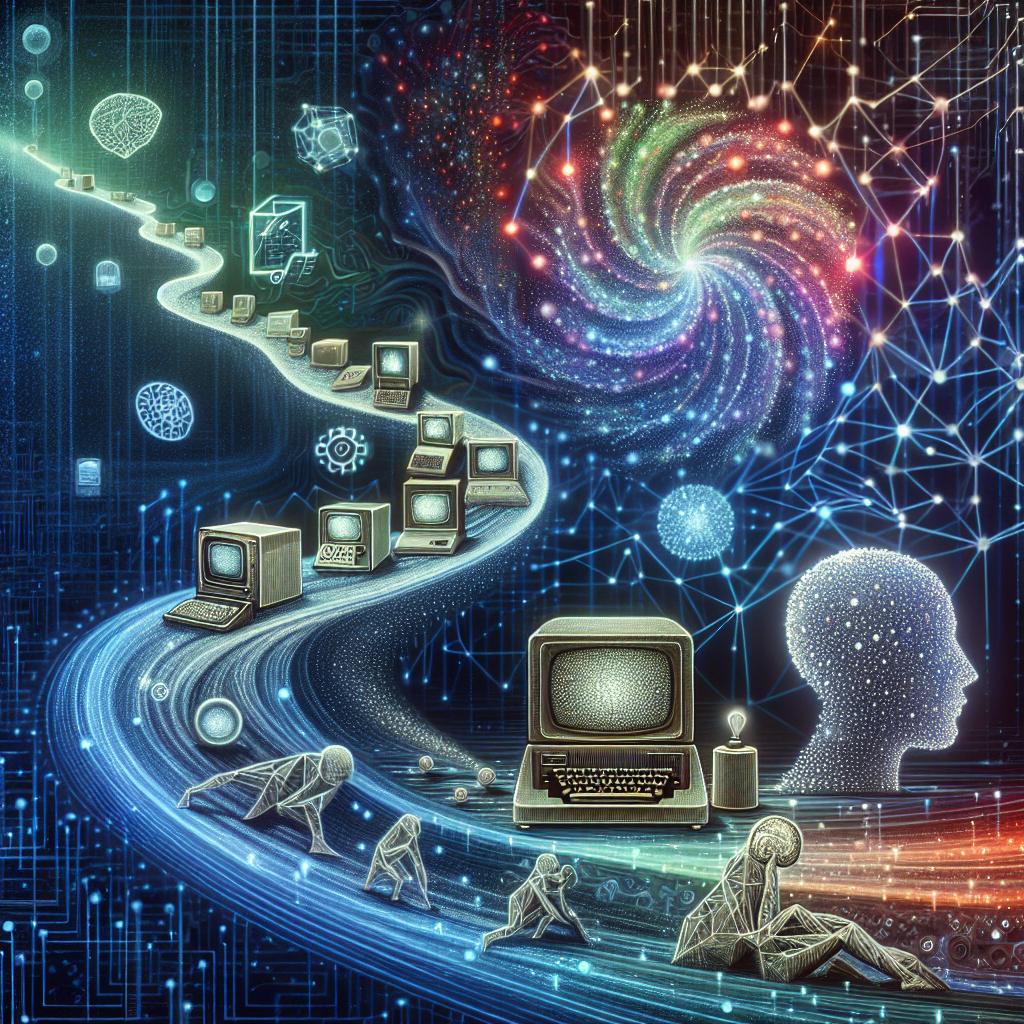AGI and Beyond: The Evolution of Artificial Intelligence in the 21st Century
Artificial General Intelligence (AGI) is a concept that has long been the stuff of science fiction. Popularized in movies and books, AGI refers to a form of artificial intelligence that is capable of performing any intellectual task that a human can. While we are still far from achieving true AGI, the field of artificial intelligence has made significant strides in recent years, leading to the development of increasingly sophisticated AI systems.
In this article, we will explore the evolution of artificial intelligence in the 21st century, from the early days of AI research to the current state of the art. We will also discuss the potential implications of AGI and what the future may hold for artificial intelligence.
The Early Days of AI
The history of artificial intelligence can be traced back to the 1950s, when researchers began to explore the possibility of creating machines that could think and learn like humans. Early AI systems were limited in their capabilities, but they laid the groundwork for future advancements in the field.
One of the key milestones in the history of AI was the development of expert systems in the 1970s and 1980s. These systems were designed to mimic the decision-making processes of human experts in a particular field, such as medicine or finance. While expert systems were successful in some applications, they were ultimately limited by their inability to adapt to new situations or learn from experience.
The Rise of Machine Learning
In the 21st century, the field of artificial intelligence has been revolutionized by the rise of machine learning. Machine learning is a subfield of AI that focuses on the development of algorithms that can learn from and make predictions based on data. This approach has led to significant advancements in areas such as natural language processing, image recognition, and autonomous driving.
One of the key breakthroughs in machine learning was the development of deep learning algorithms. Deep learning is a type of machine learning that uses artificial neural networks to model complex patterns in data. These networks are capable of learning from vast amounts of data, making them ideal for tasks such as image and speech recognition.
The Emergence of Narrow AI
While AGI remains an elusive goal, narrow AI systems have become increasingly prevalent in our daily lives. Narrow AI refers to AI systems that are designed to perform a specific task or set of tasks, such as playing chess or translating languages. These systems may excel at their designated tasks, but they lack the general intelligence of humans.
Some of the most well-known examples of narrow AI include virtual assistants like Siri and Alexa, which can understand and respond to natural language queries, and self-driving cars, which use AI algorithms to navigate roads and avoid obstacles. These systems have demonstrated the potential of AI to improve efficiency and convenience in a wide range of applications.
The Future of Artificial Intelligence
As the field of artificial intelligence continues to evolve, researchers are exploring new approaches to achieving AGI. One promising avenue of research is the development of hybrid AI systems that combine the strengths of different AI techniques, such as symbolic reasoning and deep learning. By integrating multiple approaches, researchers hope to create AI systems that are more adaptable and capable of general intelligence.
Another area of focus is the development of AI systems that are capable of self-improvement. These systems, known as recursive self-improving AI, would be able to learn and grow in their capabilities over time, much like a human brain. While the development of such systems is still in its early stages, researchers believe that they could hold the key to achieving AGI in the future.
Implications of AGI
The potential implications of AGI are vast and far-reaching. On the one hand, AGI could revolutionize industries such as healthcare, finance, and transportation, leading to increased efficiency and innovation. AGI could also help address some of the world’s most pressing challenges, such as climate change and poverty, by providing new insights and solutions.
However, the development of AGI also raises ethical and societal concerns. One of the key concerns is the potential for AGI to outperform humans in a wide range of tasks, leading to job displacement and economic inequality. There are also concerns about the misuse of AGI for malicious purposes, such as surveillance or warfare.
FAQs
Q: Will AGI surpass human intelligence?
A: While the goal of AGI is to achieve human-level intelligence, it is unclear whether AGI will surpass human intelligence in all areas. Some researchers believe that AGI could eventually surpass human intelligence in certain tasks, such as complex calculations or pattern recognition, while others argue that there are inherent limitations to AI that will prevent it from achieving true human-like intelligence.
Q: How close are we to achieving AGI?
A: While significant progress has been made in the field of artificial intelligence, we are still far from achieving true AGI. Researchers continue to explore new approaches and techniques to advance the field, but it is difficult to predict when or if AGI will be achieved.
Q: What are the ethical implications of AGI?
A: The development of AGI raises a number of ethical concerns, including questions about job displacement, economic inequality, and the potential misuse of AI for malicious purposes. It is important for researchers and policymakers to consider these ethical implications as AI technology continues to advance.
In conclusion, the field of artificial intelligence has made remarkable progress in the 21st century, leading to the development of increasingly sophisticated AI systems. While AGI remains an elusive goal, researchers continue to explore new avenues of research in the hopes of achieving true general intelligence. As AI technology continues to evolve, it is important for society to consider the ethical implications of AGI and how best to harness the potential benefits of AI for the greater good.

